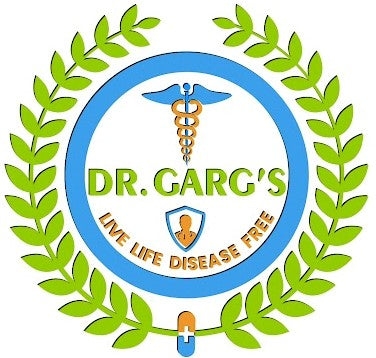Depression
Overview of Depression Treatment: Causes, Symptoms, Diagnosis, Ayurvedic and Homeopathic Treatment

Introduction:
Depression is a common mental health condition that affects millions of people worldwide. It is characterized by persistent feelings of sadness, loss of interest or pleasure in activities, and a range of physical and emotional symptoms. This article provides an overview of depression treatment, including the causes, symptoms, and diagnosis of this condition. Additionally, we will explore alternative approaches such as homeopathic and Ayurvedic treatments.
Causes of Depression:
Depression is a complex condition influenced by a combination of genetic, environmental, and psychological factors. Some common causes and risk factors include:
1. Biological Factors:
Imbalances in brain chemistry, including neurotransmitters like serotonin, norepinephrine, and dopamine, can contribute to the development of depression.
2. Genetics:
Individuals with a family history of depression are at a higher risk of developing the condition.
3. Life Events:
Traumatic experiences, loss of a loved one, relationship problems, financial difficulties, or chronic stress can trigger or exacerbate depressive symptoms.
4. Medical Conditions:
Certain medical conditions such as chronic pain, hormonal imbalances, thyroid disorders, or neurological conditions may increase the risk of depression.
5. Substance Abuse:
Alcohol or drug abuse can contribute to depression or worsen existing depressive symptoms.

Symptoms of Depression:
Depression can manifest differently in individuals, and symptoms can vary in severity. Common symptoms of depression include:
- Persistent feelings of sadness, emptiness, or hopelessness.
- Loss of interest or pleasure in activities once enjoyed.
- Changes in appetite, leading to weight loss or gain.
- Insomnia or excessive sleeping.
- Fatigue or loss of energy.
- Feelings of guilt, worthlessness, or excessive self-criticism.
- Difficulty concentrating, making decisions, or remembering details.
- Recurrent thoughts of death or suicidal ideation.
- Physical symptoms such as headaches, digestive issues, or chronic pain.

Diagnosis of Depression:
Diagnosing depression involves a comprehensive assessment by a qualified healthcare professional. The following methods are commonly used:
1. Diagnostic Interview:
The healthcare provider conducts a thorough interview of the patient to assess the presence and severity of depressive symptoms, their duration, and their impact on daily functioning.
2. Symptom Evaluation:
Using standardized questionnaires, the healthcare provider evaluates the presence and intensity of specific symptoms of depression.
3. Medical Evaluation:
A physical examination and laboratory tests may be conducted to rule out any underlying medical conditions that may be contributing to the depressive symptoms.
4. Diagnostic Criteria:
The healthcare provider refers to established criteria such as the Diagnostic and Statistical Manual of Mental Disorders (DSM-5) to determine if the symptoms meet the criteria for a depressive disorder.
Homeopathic and Ayurvedic Treatments for Depression:
Alternative approaches to depression treatment, such as homeopathy and Ayurveda, focus on holistic healing and addressing the underlying imbalances in the body. While these may not have extensive scientific evidence, some individuals find these approaches beneficial as complementary therapies. It is important to note that alternative treatments should be pursued under the guidance of Dr. Garg’s Clinic to determine the most appropriate treatment plan for your specific condition.
Homeopathic Treatment:
Homeopathy aims to stimulate the body's self-healing mechanisms by using highly diluted substances that would produce similar symptoms in a healthy person. The selection of remedies is based on an individual's specific symptoms and characteristics.
Here are some commonly used homeopathic remedies for depression:
1. Ignatia amara:
This remedy may be indicated for individuals experiencing grief, loss, or emotional upheaval. Symptoms such as mood swings, sighing, and a sensation of a lump in the throat may guide the use of Ignatia amara.
2. Natrum muriaticum:
This remedy is often prescribed for individuals who experience deep sadness, withdrawal, and an aversion to consolation. Natrum muriaticum may be considered for individuals with a history of emotional trauma or suppressed emotions.
3. Aurum metallicum:
Aurum metallicum is commonly used for individuals experiencing deep depression accompanied by a sense of worthlessness, self-condemnation, and suicidal thoughts. It may be recommended for individuals who are perfectionistic and have a strong drive for success.
Ayurvedic Treatment:
Ayurveda, an ancient Indian system of medicine, aims to restore balance and harmony within the body, mind, and spirit. Ayurvedic treatments for depression focus on nourishing the nervous system, improving digestion, and reducing stress.
Here are some common approaches used in Ayurveda for depression treatment:
1. Herbal Medicines:
Ayurvedic practitioners may recommend herbal formulations tailored to the individual's condition and constitution. Herbs such as Ashwagandha, Brahmi, and Jatamansi are commonly used to support mental well-being, reduce anxiety, and promote relaxation.
2. Dietary and Lifestyle Recommendations:
Ayurvedic treatments for depression often emphasize a balanced diet that includes fresh fruits and vegetables, whole grains, and healthy fats.

3. Panchakarma:
Panchakarma therapies, including Abhyanga (therapeutic massage), Shirodhara (oil pouring on the forehead), and Swedana (herbal steam therapy), can be used to promote relaxation, detoxification, and rejuvenation.
Additionally, regular exercise, yoga, meditation, and pranayama (breathing exercises) may be recommended to reduce stress and improve overall well-being.
It is crucial to consult Dr. Garg, who is an experienced and qualified practitioners of homeopathy and Ayurveda who can evaluate your specific condition and provide personalized treatment based on the principles of these alternative systems.
Conclusion:
Depression treatment involves a multifaceted approach that often includes psychotherapy, medication, and lifestyle modifications. Alternative approaches like homeopathy and Ayurveda can be explored as complementary therapies, but they should always be pursued under the guidance of Dr. Garg’s Clinic. We have a team of qualified doctors and medical professionals who are committed to helping you in your journey to better health. It is important to prioritize open communication with your doctor and consider a comprehensive treatment plan that addresses your unique needs and circumstances.
